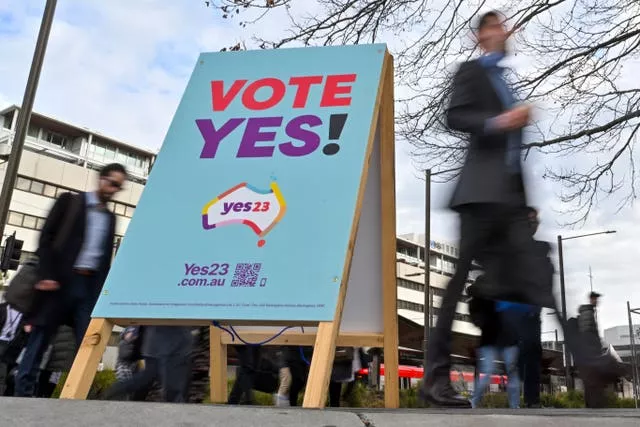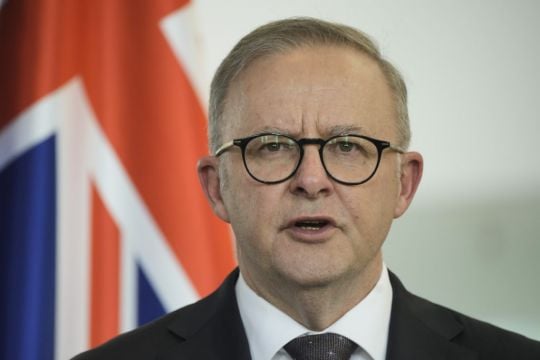Australians will vote on October 14 on a proposed law to create a so-called Indigenous Voice to parliament in the nation’s first referendum in a generation.
Prime Minister Anthony Albanese announced the referendum date on Wednesday, triggering just over six weeks of intensifying campaigning by both sides of the argument.
The referendum would enshrine in the Australian constitution an Indigenous Voice to parliament, a collection of advocates aimed at giving the nation’s most disadvantaged ethnic minority more say on government policy.
Mr Albanese urged people to vote “yes” as polls showed more than 80% of Australia’s Indigenous population – Aboriginal and Torres Strait Islander peoples – intended to do so.
“Let’s be very clear about the alternative: because voting ‘no’ leads nowhere. It means nothing changes,” Mr Albanese told 400 Voice supporters in the city of Adelaide.
“Voting ‘no’ closes the door on this opportunity to move forward. I say today, don’t close the door on constitutional recognition, don’t close the door on listening to communities to get better results.

“Don’t close the door on an idea that came from Aboriginal and Torres Strait Islander people themselves, and don’t close the door on the next generation of Indigenous Australians. Vote ‘yes’.”
Australia has not held a referendum since 1999 and a referendum has not passed since 1977.
No referendum has ever passed without bipartisan support and the major parties remain divided over the Voice.
Proponents argue that giving Indigenous people a say in policies that affect their lives would lead to less disadvantage.
Indigenous Australians account for 3.8% of population and they die around eight years younger than Australia’s wider population.
Megan Davis, an Indigenous lawyer who helped craft the Voice proposal, said Outback Indigenous residents should not have move to the national capital Canberra to “have a say in the laws and policies made about their lives”.
“Best practice globally tells us that human beings are more likely to flourish if they have control over their lives,” Ms Davis told the same audience addressed by Mr Albanese.
“To dream, to have vision, to plan: this is what the Voice is about. It permits our people to have a seat at the table.”

Proponents say there would be no Indigenous right of veto over government policy and legislators would be free to disregard the Voice’s representations.
But opponents argue the courts might interpret the Voice’s constitutional powers in unpredictable ways, creating legal uncertainty. They also say the Voice would be the biggest ever change in Australia’s democracy that would divide the nation along racial lines.
Indigenous opposition senator Jacinta Nampijinpa Price told reporters: “It is evident to me that this elite proposal is about division in our country. And it is that old rule of divide and conquer that I can’t stand for.
“I’m not going to allow a line to run straight through the middle of my family within our constitution,” Ms Price added, referring to her mixed-race heritage.
Mr Albanese has long maintained his confidence that the referendum would succeed despite opinion polls showing that the marginal majority support for the Voice has waned in recent months as the public debate has become more heated and divisive.
Voice proponents complain that social media companies have not done enough to exclude racial abuse from the argument.
Opponents including opposition leader Peter Dutton argue the system is stacked in favour of the “yes” vote.
“Just make it a fair process instead of trying to load the system and trying to skew it in favour of the ‘yes’ vote,” Mr Dutton said.
Voice advocates have accused Mr Dutton of attempting to undermine faith in the voting system.







